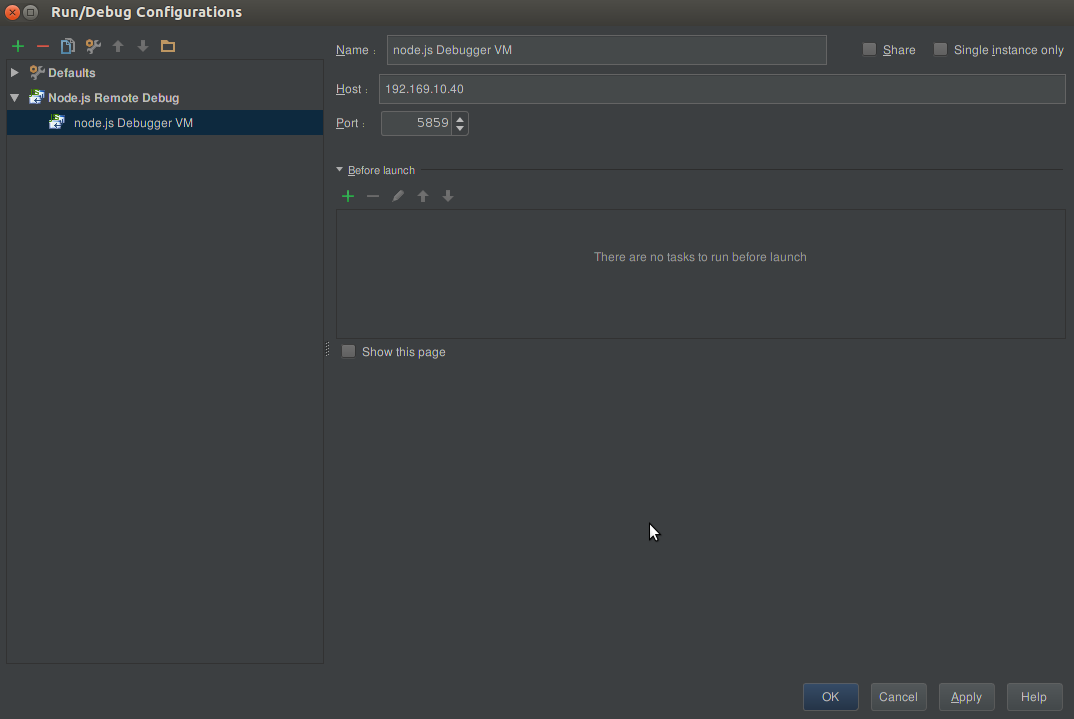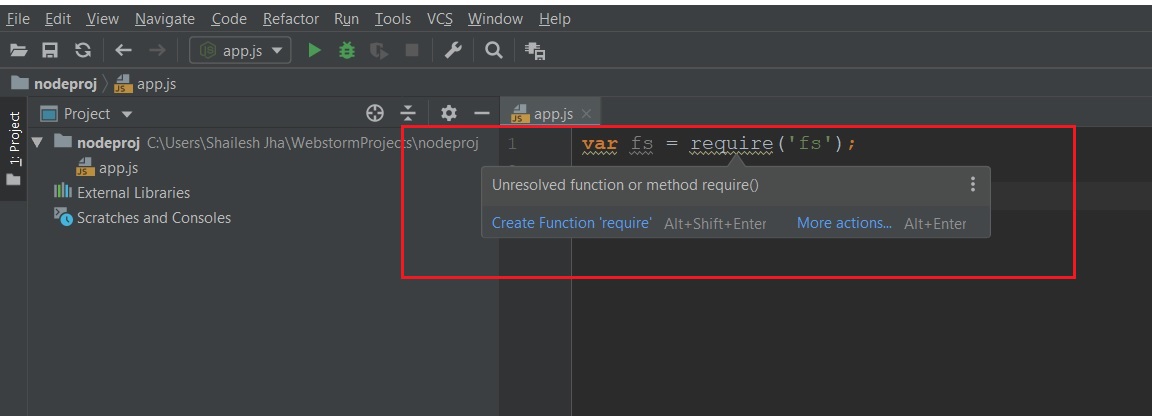
- #Phpstorm nodejs install#
- #Phpstorm nodejs registration#
- #Phpstorm nodejs pro#
- #Phpstorm nodejs code#
This configuration option is only available for your global Quokka config.json file. Please note that your Quokka global settings are not shared between your main desktop and your WSL distribution. node.js intellij-idea webstorm windows-subsystem-for-linux jetbrains-ide. Need to apply your license to your remote WSL distribution.
#Phpstorm nodejs pro#
If you have a Quokka PRO license then you will also
#Phpstorm nodejs install#
#Phpstorm nodejs code#
There are two ways to start a VS Code WSL session: WSL2 is only supported if you use VS Code. It uses modern JavaScript, is built with TypeScript and combines elements. To find out which version you are using, run the terminal command wsl -list -verbose. NestJS is a framework for building efficient, scalable Node.js web applications. WSL1 can be used with any editor while WS2 is only supported in VS Code. Windows Subsystem for Linux (WSL)įor Microsoft Windows environments, Quokka can be configured to run using WSL. Then click the Create located on the right bottom of the dialog. On the project location, choose your project folder, on filter package, search for laravel/laravel then select that package. To add Quokka configuration right in the Quokka file, you may start the file with the object expression that defines the settings: Heres some simple start to create a Laravel Project in PhpStorm: 1. Configure PHP storm IDE to work properly with NodeJS: Create a new JavaScript file in which to write your code (TO TEST IT) Starting to write our code you can see that the 'let' statement is marked as incorrect - this happens because you haven’t set up the Language Level of our project to EcmaScript 6 (EcmaScript 6 is the reason why you need. If you change your settings, you must restart your Quokka files to use the updated settings. quokka file override the settings in the package.json file, and the inline settings have the highest precedence and will override any values set with other methods. The settings in the package.json file override the settings in the global config, settings in the.
#Phpstorm nodejs registration#
The inline settings in your Quokka file are applied only to the opened file. This file will act as an entry-point for our node.js app and will contain babel registration code: And thats all, from now on, instead of running node server.js, start your app as node start. quokka file are applied to all Quokka files opened in the context of the opened project. The settings in a package.json file are applied to all Quokka files opened in the context of the opened project. The settings in the global config file are applied to all Quokka files, no matter if you are running Quokka in an opened project or not. Instead, you need to create an entrypoint file that loads esm for before application code.Quokka supports 4 sources of configuration (in addition to editor extension UI related settings): You can omit -r esm parameter when you run a node script. You can provide nodemon with -r esm parameter too:Īs simple as it is :) What if I can't/don't like to use '-r esm' parameter? The best thing is that contrary to previous babel-based solutions, this approach is production-friendly. Luckily, we're in node.js land where any problem can be solved with a hammer package.Īnd there's a package for our case too! It's called esm, the brilliantly simple, babel-less, bundle-less JavaScript module loader.Īnd it should work without any code modifications. Which in node.js words means Dude, I don't understand what you're trying to do here!.

log ( 'Example app listening on port 3000!' ))Īnd then, we run as node server.js, we'll get an error Synta圎rror: Unexpected token import. get ( '/', function ( req, res ) ) app.

file server.js import express from 'express' const app = express () // respond with "hello world" when a GET request is made to the homepage app.


 0 kommentar(er)
0 kommentar(er)
